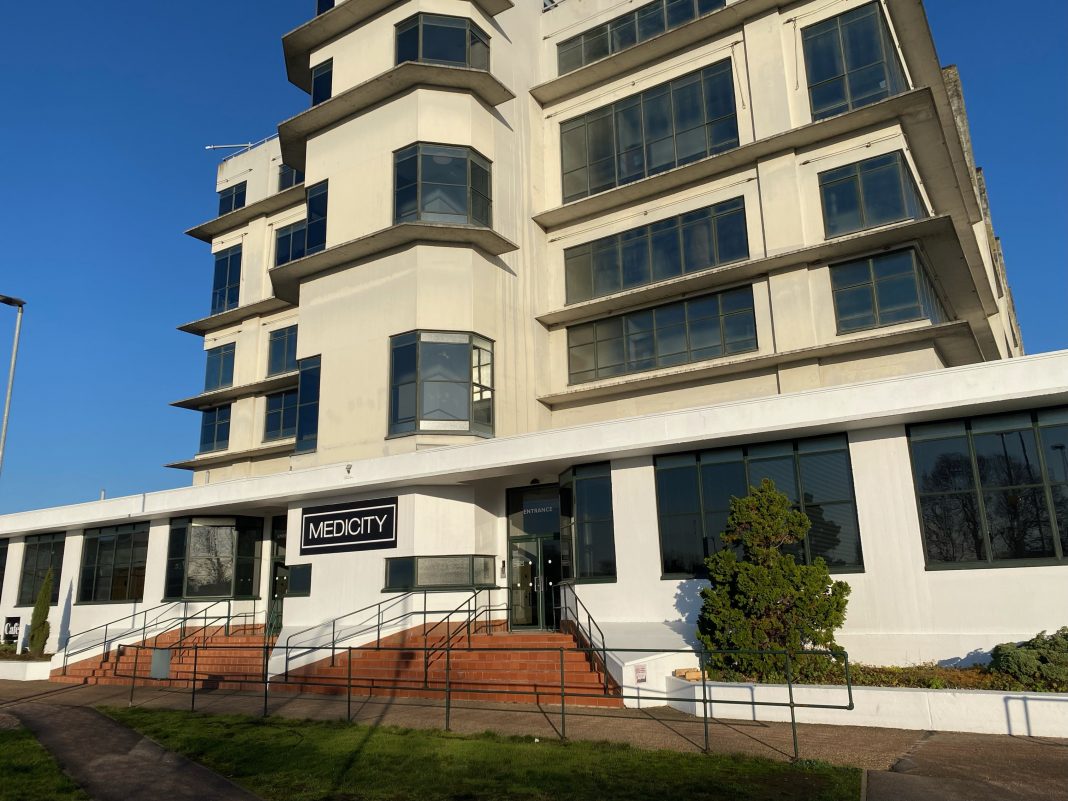ValiRx PLC, a life science company focused on early-stage cancer therapeutics and women’s health, has taken the lease on laboratory and office facilities at MediCity Nottingham as it embarks on the next stage of its strategy to launch a translational Contract Research Organisation (tCRO).
Based in Beeston, MediCity is a medtech incubator and part of Pioneer Group, and provides resident businesses with access to a connected local and national biotech community, a strong pool of quality talent from nearby universities, and flexible laboratory space.
ValiRx’s new facilities include 910 sq ft of laboratory space which will accommodate up to eight lab-based staff members.
Historically, ValiRx has operated as a virtual biotech company, outsourcing all testing of evaluation and preclinical projects to external contract research organisations (CROs).
The new laboratory infrastructure will allow ValiRx to conduct all testing in-house, with the aim of creating a more efficient and effective translational drug development service for both internal and third-party use.
ValiRx CEO, Dr Suzy Dilly explains: “We are delighted to have signed the lease of our new laboratory which gives us the opportunity to develop and launch our external tCRO service offering, as well as accelerating the development of our internal drug development programmes at a reduced cost.
“Nottingham offers the ideal base for the new lab, having established itself as a hub for life science companies and affording access to a strong pool of local scientific skills and talent. Work now begins on building a first-class scientific and operational team and implementing testing techniques that will help to improve biological understanding of ValiRx’s collaborative development pipeline and, in due course, third party services.”
Dr Cathy Tralau-Stewart, who has recently joined ValiRx as CSO on a permanent basis, says: “ValiRx is progressing an innovative portfolio of projects to address the important areas of oncology and the unmet need for treatments in the women’s health space. The development of the tCRO is an important step forward and will fill the gaps that exist for robust and reliable validated translational models in these areas.”
Dr Dilly adds: “Setting up our own laboratory will enable us to carry out more science, more quickly, efficiently, and cost-effectively, and provides us with a strong framework to identify additional capabilities and technologies to acquire and incorporate into the business in the longer term.”



